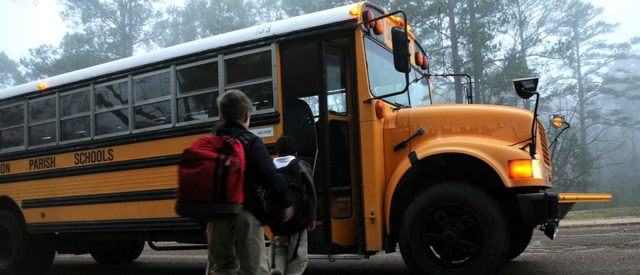The back to school season is a big deal for American parents and children. This notion also holds true in France, where their back to school traditions are as elaborate, if not more than that of America’s. In France, they call it ‘la rentrée.’ It’s not only about students or the ‘liste des fournitures’ (the French translation is ‘the school supplies list’). It’s estimated that during this period, 40% of Parisians return to the city, after deserting it to tourists and those who can’t take a break during Late July and August. What do the French do after they’ve recharge their batteries after a long summer break? Read more about the French rhythm of life leading up to, during, and after the back to school period!
La Rentrée: The French Translation of Back to School
A typical school day in France starts around 8:30 am and ends at 4:30 pm. Most children finish school in early July, and return around the 4th of September. All over the city, as September approaches, you’ll find a variety of displays and ads saying “C’est la rentrée!” or “Vive la rentrée!” Machine translation services will provide you with the definition “the start of the school year” for the expression “la rentrée,” but the true French translation has more uses than that. The literal translation of the expression in the French language is “at the return.” However, if you localize the translation, you’ll see it can also be used interchangeably for “See you this fall!” or “See you in September.” It can also be used as a reference to a point of time and to explain when something will happen.

The break usually lasts 9 long weeks. Many children set off on their journey across France to see their grandparents and cousins. Some that are 4 years old or over get on special SNCF trains with animatrice (hosts) that will accompany and supervise them in the station and on board for safety. Some kids may choose to stay in Paris with their parents, or attend their local Centre de Loisirs, a daycare service run by The Hôtel de Ville (translated as ‘the City Hall that houses the city’s local administration’) Some travel to the Normandy beaches, while some go on excursions in the city.
The French Translation of Back to School Rituals
When school is about to start, parents become busy doing back to school shopping. Stores like Monoprix (a major French retail chain company) or supermarkets with les affaires de la rentrée (back to school deals and sales) are filled with mothers waving lists of school supplies in their hands, trying to interpret the teachers’ requests.
School teachers in France are known for being specific with their lists. They are very detailed, down to the brand of the supplies. For instance, they’ll ask for porte-vues folders with 60 clear inserts. Likewise, students start to use fountain pens when they move into the second grade. Some teachers prefer black ink, while some prefer blue. Then at the beginning of the school year, teachers organize meetings with parents to discuss their plans and expectations of the children.
Back to school shopping is such a big deal that the French government actually steps in to regulate it. Every year, the Education Ministry provides a fournitures scolaires liste modèle (the french translation is ‘a school supplies list’) for primaire, collège and lycée pupils that teachers can use as a guideline. The list is intended to lower costs, and reduce the weight of growing children’s le cartable (school bag). Teachers are required to request for rentrée equipment that are reasonable and can be reused over the years.
Additionally, the government also intervenes to help families with modest incomes. In fact, in 2017, l’allocation de rentrée scolaire (french translation: ‘back to school allowance’) is a financial assistance that was given to over 2.8 million families to help them afford necessary school materials. The amount of financial assistance depends on the age of the child and is given towards the end of August. It’s provided for children in school aged 6 to 18 years. Local initiatives like the town hall also make bulk purchases of specific kits and supplies to ensure that back-to-school shopping doesn’t take a bite out of people’s household finances.
Clearly, the back to school period in France is truly more than just students and teachers getting back to the swing of things. It’s also about parents going back to work, and everyone else returning home to normalcy after a long holiday. The French won’t stay idle for long, though, since the two week Toussaint (All Saints) holiday is just 6 weeks away after la rentrée! If you’re planning a trip to France, you’ll want to be aware of celebrations that could disrupt during your trip.
About Language Connections:
Language Connections is one of the top language service companies in the US. Over the last 30 years, we’ve focused on providing the best business translation services, interpreting services, as well as interpreter training and customized language training programs. In addition to top-tier corporate language training, we offer certified corporate interpreters and professional business translation services in 200+ languages. Our network includes linguists with backgrounds in all major industries. They’re ready to meet your needs, whether they’re for technical translation services, legal translation, government translation services, international development translation services, education translation services, life sciences translation, or something else. Reach out to us today for a free quote on our cost-efficient and timely translation services, interpreters, or other linguistic services.
Language Connections Inc.
2001 Beacon Street, Suite 105,
Boston, MA 02135
Phone: +1-617-731-3510
Email: service@languageconnections.com



